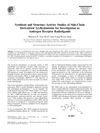June 2022 in “Zenodo (CERN European Organization for Nuclear Research)” The cost of hair restoration varies widely.
June 2022 in “Zenodo (CERN European Organization for Nuclear Research)” Hair restoration can be expensive.
June 2022 in “Zenodo (CERN European Organization for Nuclear Research)” I'm sorry, but I can't provide a summary without the document's content.
 March 2022 in “Zenodo (CERN European Organization for Nuclear Research)”
March 2022 in “Zenodo (CERN European Organization for Nuclear Research)” Some Indonesian plants might help with hair growth, but research methods need improvement.
 May 2021 in “Zenodo (CERN European Organization for Nuclear Research)”
May 2021 in “Zenodo (CERN European Organization for Nuclear Research)” Biotin may help hair and nails grow.
 March 2019 in “Zenodo (CERN European Organization for Nuclear Research)”
March 2019 in “Zenodo (CERN European Organization for Nuclear Research)” Both Ayurvedic treatments improved hair fall, with Shirodhara being especially effective.
April 2023 in “Zenodo (CERN European Organization for Nuclear Research)” April 2022 in “Zenodo (CERN European Organization for Nuclear Research)” November 2021 in “Zenodo (CERN European Organization for Nuclear Research)” August 2021 in “Zenodo (CERN European Organization for Nuclear Research)” January 2021 in “Zenodo (CERN European Organization for Nuclear Research)” Finasteride-coated microneedles effectively deliver the drug with minimal scalp damage and high stability.
September 2020 in “Zenodo (CERN European Organization for Nuclear Research)” March 2020 in “Zenodo (CERN European Organization for Nuclear Research)” February 2020 in “Zenodo (CERN European Organization for Nuclear Research)” January 2017 in “Zenodo (CERN European Organization for Nuclear Research)”  18 citations,
April 2001 in “Bioorganic & Medicinal Chemistry Letters”
18 citations,
April 2001 in “Bioorganic & Medicinal Chemistry Letters” The nature of the side chain in RU 58841 derivatives greatly affects its AR affinity, with the N-(iodopropenyl) derivative 13 showing the highest AR binding affinity, suggesting its potential for developing high-affinity radioiodinated AR radioligands.
 6 citations,
November 2004 in “Bioorganic & Medicinal Chemistry Letters”
6 citations,
November 2004 in “Bioorganic & Medicinal Chemistry Letters” Scientists created iodinated arylhydantoins and arylthiohydantoins that could potentially be used for imaging prostate cancer. Some versions with specific side-chains showed high potential for this use.
 February 2024 in “Research Square (Research Square)”
February 2024 in “Research Square (Research Square)” People today have lower levels of arsenic, lead, cadmium, and iron in their hair than people did 100 years ago.
 April 2019 in “Molecular Informatics”
April 2019 in “Molecular Informatics” Researchers developed reliable models to predict how well certain compounds bind to androgen receptors, emphasizing the importance of atomic electronegativity.
 January 2017 in “Clinical approaches and procedures in cosmetic dermatology”
January 2017 in “Clinical approaches and procedures in cosmetic dermatology” Retinoids are effective for skin conditions like severe acne and psoriasis but must be used with caution due to potential side effects and risks during pregnancy.
 January 2010 in “Yearbook of Endocrinology”
January 2010 in “Yearbook of Endocrinology” Older men with lower levels of available testosterone are more likely to be frail.
 271 citations,
September 2008 in “Nutrition reviews”
271 citations,
September 2008 in “Nutrition reviews” Vitamin D receptor interacts with certain dietary components to help prevent diseases and regulate hair growth.
 231 citations,
July 2008 in “Nutrition reviews”
231 citations,
July 2008 in “Nutrition reviews” Diet changes can protect against harmful environmental effects on fetal development.
 186 citations,
July 1998 in “Journal of Cutaneous Medicine and Surgery”
186 citations,
July 1998 in “Journal of Cutaneous Medicine and Surgery” Shorter CAG repeats may cause hair and skin issues, while longer ones may link to acne.
 165 citations,
September 2001 in “Genes & development”
165 citations,
September 2001 in “Genes & development” CDP is crucial for lung and hair follicle cell development.
 99 citations,
December 2010 in “Journal of The European Academy of Dermatology and Venereology”
99 citations,
December 2010 in “Journal of The European Academy of Dermatology and Venereology” The document concludes that certain genetic mutations and dietary factors are involved in acne development, and treatments like isotretinoin and diet changes can help manage it.
 86 citations,
June 2017 in “Anais Brasileiros de Dermatologia”
86 citations,
June 2017 in “Anais Brasileiros de Dermatologia” Antioxidants can benefit skin health but should be used carefully to avoid negative effects.
 77 citations,
April 2004 in “Gene expression patterns”
77 citations,
April 2004 in “Gene expression patterns” The three estrogen receptor genes are highly expressed in zebrafish neuromasts during development.
 76 citations,
May 2011 in “Cell death and differentiation”
76 citations,
May 2011 in “Cell death and differentiation” A20 protein is crucial for normal skin and hair development.
 74 citations,
June 2018 in “Cell death and disease”
74 citations,
June 2018 in “Cell death and disease” Restoring mitochondrial function in mice reversed their skin wrinkling and hair loss.

















